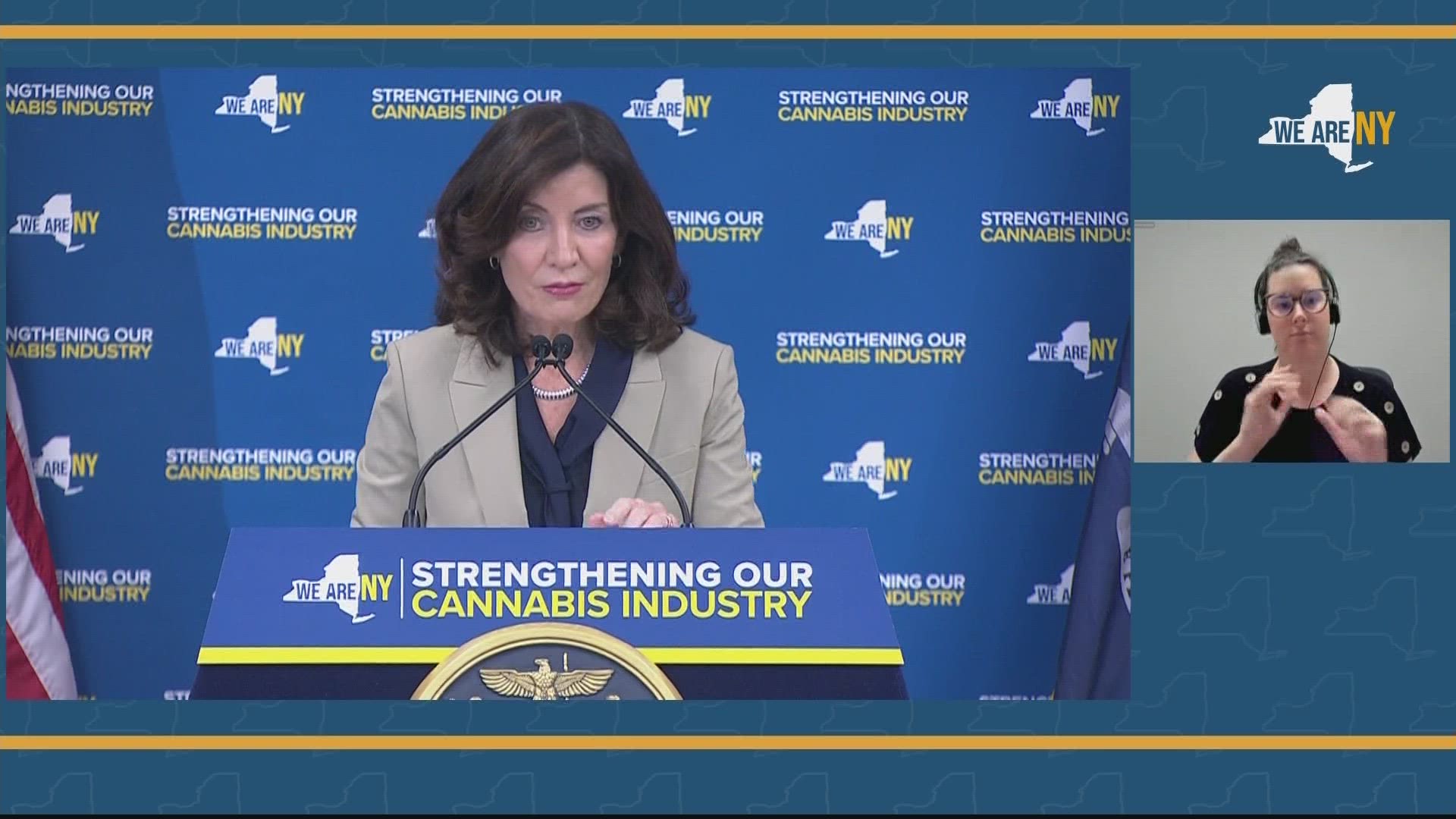ALBANY, N.Y. — People who have pleaded guilty to crimes they didn't commit would have an easier time challenging their convictions under a bill passed by New York lawmakers this week, over the objection of prosecutors who warned it might also open the door to endless appeals by the guilty.
Under current state law, people who plead guilty to a crime are usually barred from trying to get those convictions tossed out on the grounds that they are actually innocent, except in cases involving new DNA evidence.
That prohibition would be eased under the bill. Other types of evidence of innocence could be considered, as well as arguments that a person was coerced into pleading guilty.
“If you are innocent, you should not be incarcerated. That is not a radical proposition, that’s not out of step with what most New Yorkers think. That’s exactly how our legal system should work,” state Senator Zellnor Myrie, a Brooklyn Democrat, said when lawmakers were deliberating on the Senate floor.
Gov. Kathy Hochul, a Democrat, hasn't indicated whether she will sign the legislation.
The law is aimed at people like Steven Lopez, who at age 15 was one of several New York City youths accused of rampaging through Central Park in 1989 and raping a jogger.
Five of the teens who went to prison in that case were later exonerated by DNA evidence, which linked the rape to a serial rapist and murderer. But when the “ Central Park Five ” had their convictions thrown out in 2002, it didn't apply to Lopez, who had avoided rape charges by pleading guilty to a robbery elsewhere in the park the same night.
The charges against Lopez weren’t thrown out until last year, after the Manhattan district attorney reviewing the case concluded his guilty plea was done involuntarily under immense pressure.
The District Attorney's Association of the State of New York cautioned, though, that while the bill would help the wrongfully convicted, it could also give a pathway to unwarranted appeals by people who are actually guilty.
“The bill would overwhelm the criminal justice system, at a time when the next straw might be the one that breaks its back," the group said in a statement. “It would be an entirely unnecessary ‘fix’ for something that is not broken."
Republican lawmakers said the change in the law is unnecessary.
“How many times are Democrats going to tip the scales of justice in favor of convicted criminals? Victims and law enforcement continue to be an afterthought in Albany,” said state Assembly Minority Leader William Barclay, a Republican who voted against the bill. “Everyone can agree that wrongful convictions should be prevented, but processes and protocols already exist for that.”
In New York, 94% of felony cases result in plea bargains, according to the New York State Association of Criminal Defense Lawyers.
In 2018, a top court judge ruled that people who plead guilty in New York cannot challenge their convictions unless they have DNA evidence to support their innocence. That requirement makes it extremely difficult for defendants to get their cases heard before a judge, even if they have substantial evidence that is not DNA-based.
Thomas Hoffman, an attorney who is representing two clients he says are innocent, said the existing appeal process for wrongful convictions is like being on “pins and needles.”
Amanda Wallwin, a state policy advocate at the Innocence Project, a non-profit organization that works to exonerate people who have been wrongfully convicted, said the bill is a long overdue measure.
“We hope that this bill will allow people who were wrongfully convicted to reveal that fact and get them free,” she said. “Nothing is more fundamental to our criminal legal system than differentiating guilt from innocence. The bill makes the system work. It gives the judge the ability to say ‘you’re innocent, you have the evidence, and you can proceed on those grounds.' "

